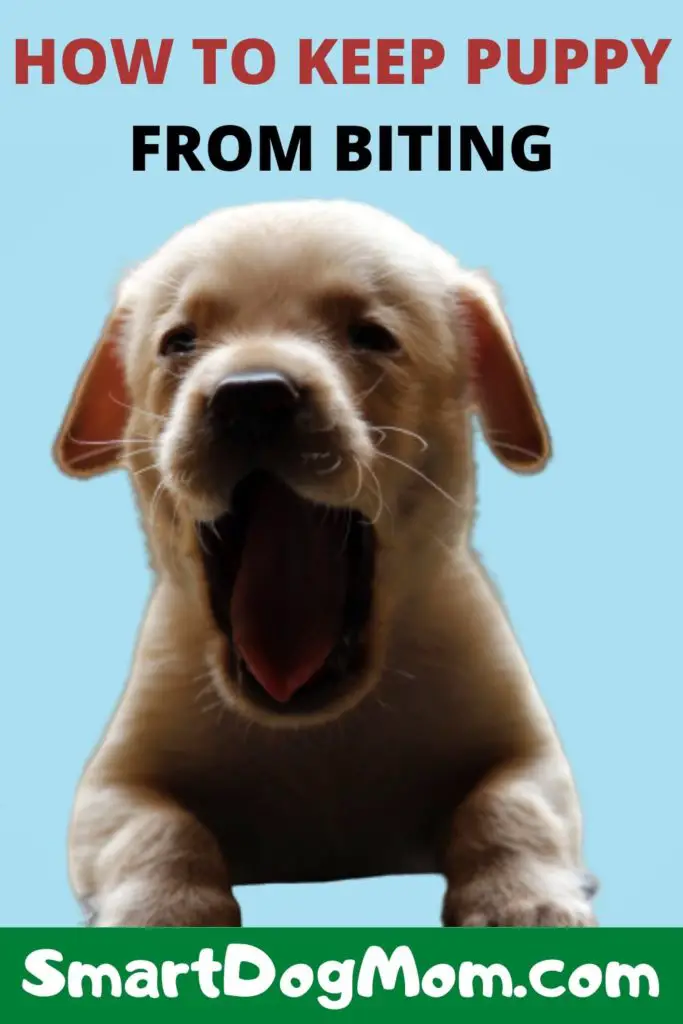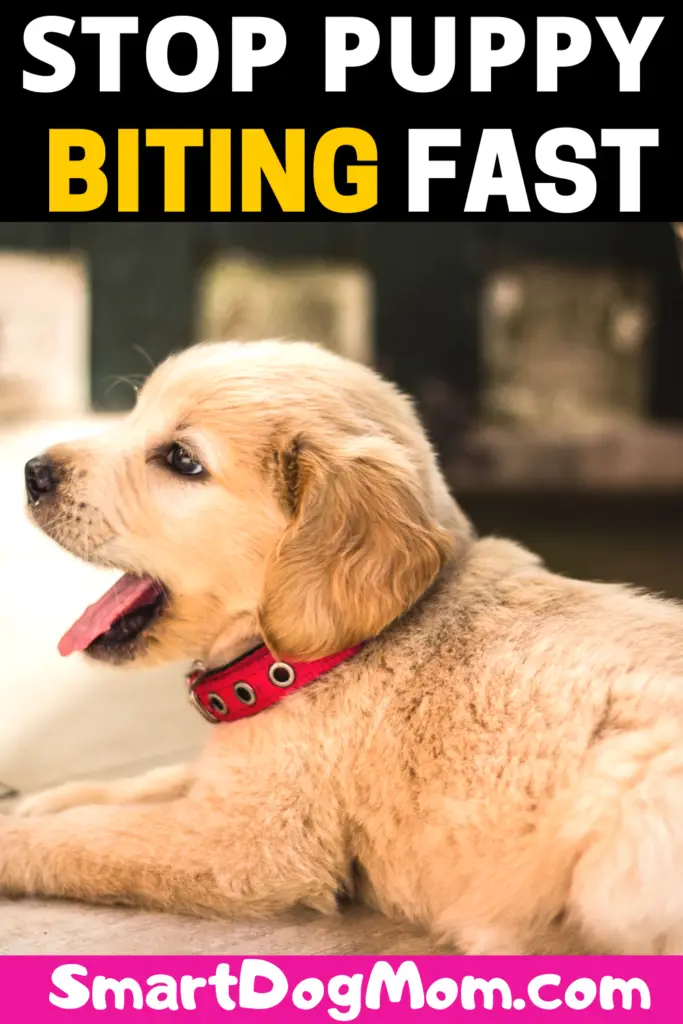As a dog owner, you love the dog very much and spend your favorite moments with your dog, but one of our worries is making sure that our dogs don’t bite.
The behavior of a puppy is similar to that of small children. Their teeth are sharp. They like to bite on anything.
If you give your puppy a colorful toy, then, of course, you notice that they bite the toy a lot. When you leave your dog at home when you go to work, your dog is chewing on everything in the house. And, some of your favorite things get destroyed. Puppies chew while they are teething. If they are not trained properly as a puppy, this undesirable behavior will continue into adult doghood.

Let’s talk about how you can get rid of this problem.
Table of Contents
First We Have to Know Why Puppies Bite?
Puppies perform various actions through their mouths. They use their mouths to navigate & investigate, so they will bite different things. If we can convince them that our favorite things are not to be bitten, then they will soon know what can be chewed and what cannot.
Puppies do not bite anything with the purpose of making something bleed, Instead, they are chewing to learn about objects. Also, puppies teeth similar to human babies. When their teeth erupt from their gums, it is painful and chewing helps to break the teeth through the gums and it helps with the pain they are experiencing.
By spending time on training your puppy you will enjoy a dog with good behaviors. It is very important to spend valuable time with them while they are young, teaching them good behaviors so you can enjoy a well-behaved dog for years to come.
How to Keep a Puppy from Biting Fast When Excited?
Bite-sensitivity training is one of the most mentioned strategies for getting your puppy under control. This will allow your puppy to understand that it is not right to bite all sorts of things. Bite sensitivity training can be a way for your dog to mimic an experience. You give the dog a ball for this training exercise.
Hold the ball, when the puppy bites the ball you snatch the ball with a gentle jerk. Your dog will remember the jerk as a stimulus. When your puppy bites you, shake your leg or arm that is being bitten. They will associate this motion as a negative thing and connect the behavior of biting to that motion.
Allow the bite attachment to weaken and calmly withdraw from your dog. Let him understand that you have been in pain, and with that, you are not proud of her behavior by saying NO or NO BITE loudly each time he/she bites you. Because our puppies want to please us, they will associate this sound or phrase as something that does NOT please you and will stop.
On the contrary, when your puppy is chewing contently on it’s chew toy, make sure to praise them by petting on the head and saying in your good, loving tone, “nice dog” or “good dog”. Make sure to keep these commands consistent so they associate good and bad behavior with the phrase as well.
Enough Teaching Your Puppy Not to Bite
- Respond consistently when your puppy bites you. You will respond each time with, “NO BITE!” in a louder and convincing voice and tone.
- You can use taste barriers to prevent your puppy from biting. So when you time or play with your puppy. We recommend that you apply the taste spray on your body and your clothes. When the puppy bites, wait until the dog responds. When he reacts, tell the dog NO BITE! The sour taste along with your command will teach them that their behavior of biting is a bad thing to do
- Make sure to reward your dog when they are chewing or biting on the objects intended for their use and play by saying, “nice dog” or “good dog” in a calm and pleasing tone and voice.
- Let your puppy play with other dogs and people so that he can begin to understand how to interact correctly.

Recommended Popular Articles: